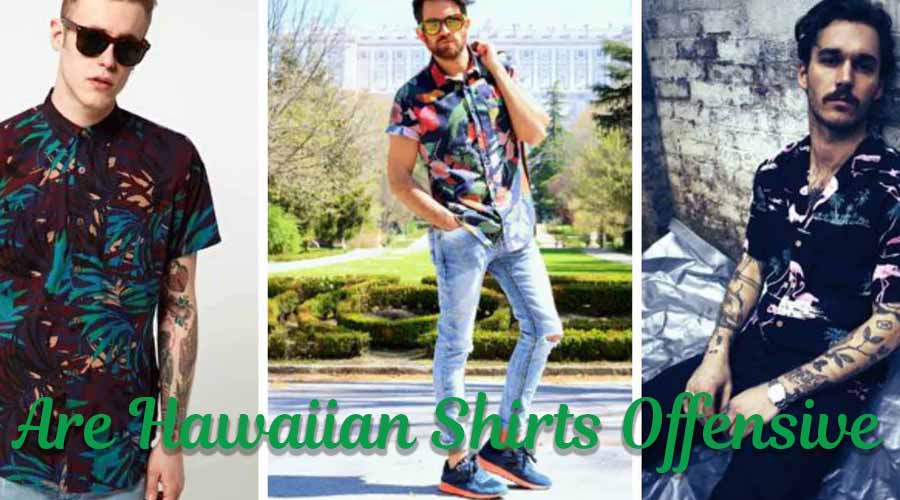
Are Hawaiian Shirts Offensive
Are Hawaiian Shirts Offensive?
Hawaiian t shirts, also known as aloha shirts, have been a popular fashion trend for decades. These brightly colored shirts, often adorned with tropical patterns and images, have become synonymous with summertime, relaxation, and vacation. However, in recent years, there has been a growing debate about whether or not Hawaiian shirts are offensive. In this blog post, we will explore the history of Hawaiian shirts, the arguments for and against their offensiveness, and offer some suggestions for respectfully wearing and appreciating Hawaiian shirts.
I. Introduction
Hawaiian shirts are a significant part of Hawaiian culture. Originally designed and worn by Hawaiian men, these shirts were made from brightly colored fabrics and featured intricate patterns that represented different aspects of Hawaiian life. In the 1920s and 1930s, Hawaiian shirts began to gain popularity among tourists visiting the islands, and soon after, mainland Americans began to embrace the style. Today, Hawaiian shirts are a staple of summer fashion and are worn by people of all ages and backgrounds.
However, in recent years, there has been a growing debate about whether or not Hawaiian shirts are offensive. Some argue that the shirts are a form of cultural appropriation, while others say that they are a symbol of Hawaiian pride and cultural appreciation. So, are Hawaiian shirts offensive? Let’s take a closer look.

II. History of Hawaiian Shirts
To understand the debate surrounding Hawaiian shirts, it’s essential to understand their origins and significance in Hawaiian culture. Hawaiian shirts were first created in the 1920s by Chinese and Japanese immigrants who had settled in Hawaii. These immigrants were looking for a way to make a living and decided to create shirts using the brightly colored fabrics that were popular among tourists visiting the islands.
The shirts quickly gained popularity among locals and tourists alike, and soon Hawaiian shirt makers began to incorporate traditional Hawaiian patterns and images into their designs. These patterns and images represented different aspects of Hawaiian life, such as the ocean, plants, and animals.
In the 1930s, Hawaiian shirts began to gain popularity among mainland Americans. Tourists visiting Hawaii would often purchase Hawaiian shirts as a souvenir of their trip, and soon the shirts became a popular fashion trend on the mainland. Today, Hawaiian shirts are worn by people of all ages and backgrounds, and they have become a staple of summer fashion.
III. Arguments for why Hawaiian Shirts are Offensive
Despite the popularity of Hawaiian shirts, there are some who argue that the shirts are offensive. One of the main arguments is that Hawaiian shirts are a form of cultural appropriation. This argument states that non-Hawaiians wearing Hawaiian shirts is a way of taking something from Hawaiian culture and using it for their own purposes without understanding or respecting the culture from which it came.
Another argument is that Hawaiian shirts are associated with derogatory stereotypes of Hawaiians. These stereotypes often portray Hawaiians as lazy, carefree, and irresponsible. While it’s true that Hawaiian shirts are often associated with relaxation and vacation, some argue that these stereotypes are harmful and perpetuate negative views of Hawaiian culture.

IV. Arguments Against the Offensiveness of Hawaiian Shirts
Despite the arguments against the offensiveness of Hawaiian shirts, there are also those who argue that the shirts are not offensive at all. One of the main arguments is that Hawaiian shirts are a symbol of Hawaiian pride and cultural appreciation. Many Hawaiians see the shirts as a way to celebrate and share their culture with others.
Another argument is that Hawaiian shirts have become a popular fashion trend and are not intended to be offensive. People who wear Hawaiian shirts may not have any intention of appropriating Hawaiian culture or perpetuating stereotypes. They simply like the way the shirts look and enjoy wearing them.
Another argument is that Hawaiian shirts have become a popular fashion trend and are not intended to be offensive. People who wear Hawaiian shirts may not have any intention of appropriating Hawaiian culture or perpetuating stereotypes. They simply like the way the shirts look and enjoy wearing them. For many, wearing a Hawaiian shirt is a way to feel relaxed and carefree, and it’s important to remember that people’s intentions behind wearing these shirts may not be malicious.
Additionally, Hawaiian shirts are worn in many different contexts, including for special occasions such as weddings, celebrations, and festivals. It is a way to express joy, happiness and to celebrate.

V. Conclusion
In conclusion, the debate surrounding the offensiveness of Hawaiian shirts is a complex one, with valid arguments on both sides. While it’s true that Hawaiian shirts are a significant part of Hawaiian culture, it’s also important to remember that people’s intentions behind wearing these shirts may not be malicious.
If you choose to wear a Hawaiian shirt, it’s essential to be respectful of the culture and the people from which it comes. One way to do this is to learn about the history and significance of Hawaiian shirts and to be mindful of any stereotypes or negative associations that may be associated with them. Additionally, it’s important to support Hawaiian-owned businesses, and those that create shirts with traditional patterns and images.
Ultimately, it’s up to each individual to make their own decision about whether or not to wear Hawaiian shirts. By being informed and respectful, we can all appreciate and celebrate Hawaiian culture in our own way.




